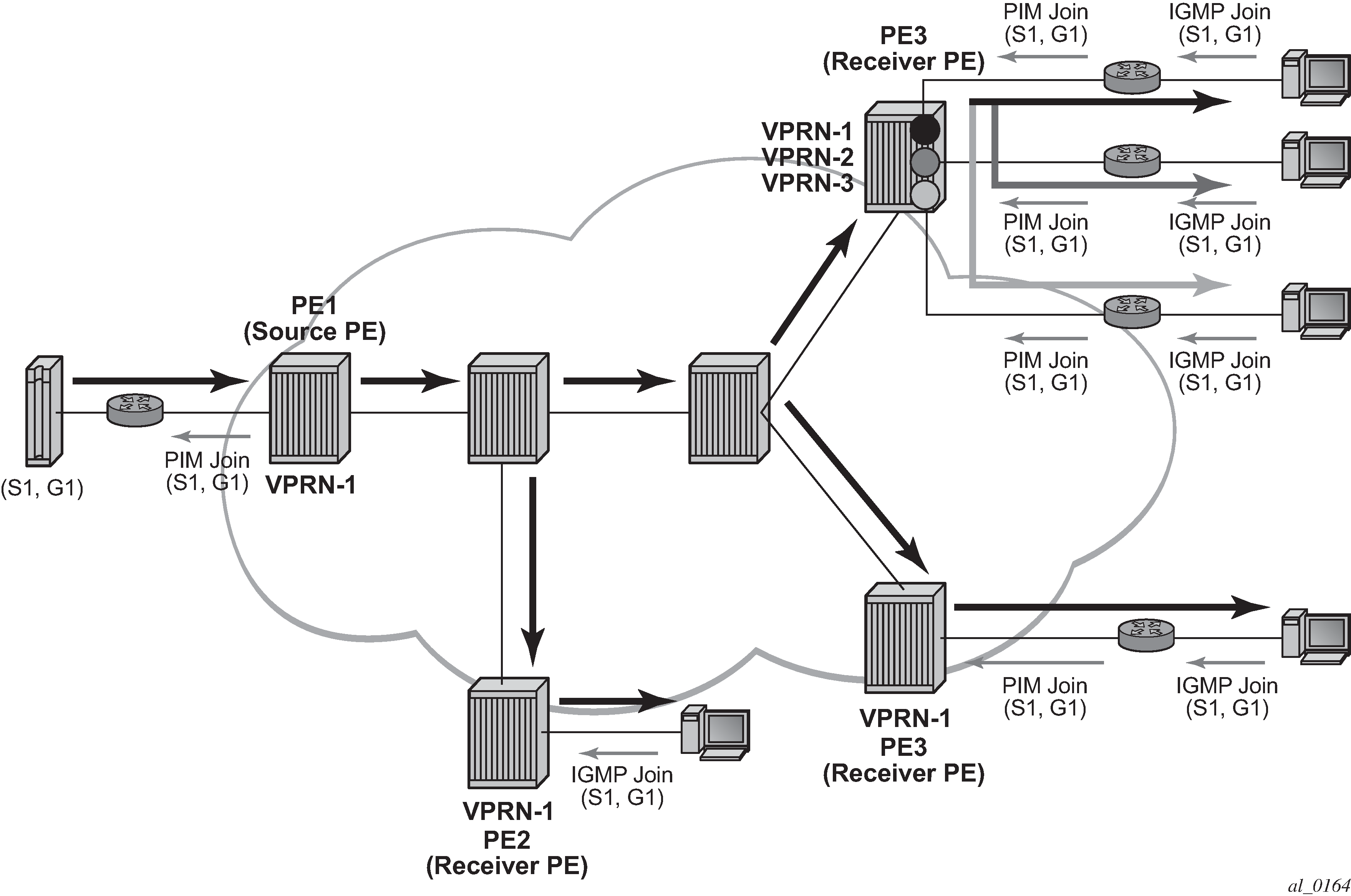Multicast extranet is supported for Rosen MVPN with MDT SAFI. Extranet is supported for IPv4 multicast stream for default and data MDTs (PIM and IGMP).
The following extranet cases are supported:
local replication into a receiver VRF from a source VRF on a source PE
transit replication from a source VRF onto a tunnel of a transit core VRF on a source PE. A source VRF can replicate its streams into multiple core VRFs as long as any specific stream from source VRF uses a single core VRF (the first tunnel in any core VRF on which a join for the stream arrives). Streams with overlapping group addresses (same group address, different source address) are supported in the same core VRF.
remote replication from source or transit VRF into one or more receiver VRFs on receiver PEs
multiple replications from multiple source or transit VRFs into a receiver VRF on receiver PEs
Rosen MVPN extranet requires routing information exchange between the source VRF and the receiver VRF based on route export or import policies:
Routing information for multicast sources must be exported using an RT export policy from the source VRF instance.
Routing information must be imported into the receiver or transit VRF instance using an RT import policy.
The following are restrictions:
The source VRF instance and receiver VRF instance of extranet must exist on a common PE node (to allow local extranet mapping).
SSM translation is required for IGMP (C-*, C-G).
An I-PMSI route cannot be imported into multiple VPRNs, and NG-MVPN routes do not need to be imported into multiple VPRNs.
In Figure: Multicast VPN traffic flow, VPRN-1 is the source VPRN instance and VPRN-2 and VPRN-3 are receiver VPRN instances. The PIM/IGMP JOIN received on VPRN-2 or VPRN-3 is for (S1, G1) multicast flow. Source S1 belongs to VPRN-1. Because of the route export policy in VPRN-1 and the import policy in VPRN-2 and VPRN-3, the receiver host in VPRN-2 or VPRN-3 can subscribe to the stream (S1, G1).
